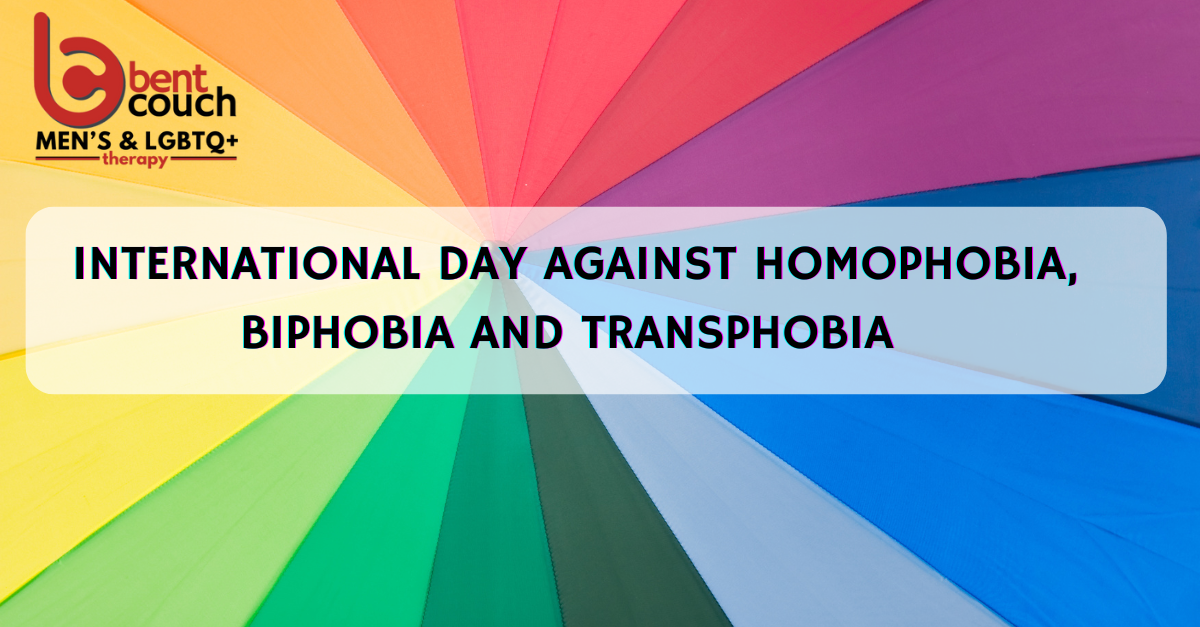10 Ways to Support LGBTQIA+ People Coming Out
Coming out is one of the most vulnerable and courageous things a person can do. Whether it’s about sexuality, gender identity, or simply living more authentically, it’s a moment that deserves to be met with respect, compassion, and care.
We recognise IDAHOBIT on May 17th, a day that highlights the discrimination that LGBTQIA+ people continue to experience globally. But it’s also a chance to celebrate courage, connection, and allyship. If someone chooses to share their truth with you, it means they trust you.
Here’s how you can honour their trust and truly support them:
1. Listen First, Speak Later
When someone comes out, it’s not the time to share your opinions, stories, or assumptions. Your first job is simple but powerful: listen.
Be present. Put down your phone. Make eye contact.
Let them lead the conversation. Avoid interrupting or rushing to reassure.
Validate their experience with phrases like, “Thank you for trusting me,” or “I’m honoured you felt you could share this with me.”
This moment is about them, not about how you feel.
2. Watch Your Reactions, Even the Subtle Ones
Occasionally, it’s not what we say, but how we react. A surprised eyebrow raise, a long pause, or a poorly timed joke can speak volumes.
Aim for calm, warm, and accepting responses. You don’t have to have the “perfect” thing to say. Often, a simple “I see you, and I support you” is enough.
If you fumble, own it. “Sorry, that came out wrong, what I mean is, you’re safe with me.”
3. Avoid Asking Invasive Questions
Curiosity is natural, but boundaries matter. Coming out is already emotionally charged. Bombarding someone with personal questions can make them feel like they’re on trial.
Questions to avoid:
“When did you know?”
“Are you sure?”
“Have you told your family/partner/kids?”
“So what does that mean for your sex life?”
Instead, ask, "How can I support you right now?”
This approach keeps the focus on their needs, not your curiosity.
4. Respect Their Privacy
A person's coming out is their own story to tell, not yours to share.
Never out someone to others, even with good intentions.
Avoid the “gossip” trap disguised as concern.
Always ask, "Is this something you’d like me to keep private?”
Trust is hard-won. Don’t be the reason it’s broken.
5. Educate Yourself
It’s okay if you don’t know everything about LGBTQIA+ identities. But it’s not their job to educate you.
Use trusted resources like Minus18, ACON, or Bent Couch articles.
Learn the correct terminology.
Understand common myths and stereotypes, and actively unlearn them.
A small effort on your part reduces their emotional burden.
6. Check Your Own Biases
Coming out often shines a light on unconscious biases – things you didn’t even realise you held.
Be honest with yourself:
Do you assume “they” always means heterosexual?
Are your jokes inclusive, or might they cause harm?
Do you treat LGBTQIA+ topics as taboo?
IDAHOBIT is a perfect reminder to challenge these internal narratives.
7. Celebrate
Support goes beyond acceptance. It’s about affirmation.
Celebrate their courage.
Acknowledge the journey they’ve been on.
Use inclusive language in everyday life.
Correct others gently if they misgender or make inappropriate comments.
It's not just about “being okay with it". It’s about showing genuine joy for their authenticity.
8. Keep Supporting Beyond the Moment
Coming out isn’t a one-time event. It’s an ongoing journey, often with different layers and challenges.
Continue to check in with them.
Invite them into LGBTQIA+ inclusive spaces.
Be mindful of milestones, like their first Pride or navigating family reactions.
True support is consistent.
9. Be the Ally Who Takes Action
Words are important. Actions speak louder.
Speak up when you hear homophobic, biphobic, or transphobic remarks.
Support LGBTQIA+ organisations.
Advocate for inclusive policies in your workplace, school, or community.
Allyship is about showing up, especially when it’s uncomfortable.
10. Remember: This is About Their Joy, Not Your Validation
Coming out is not an invitation for you to prove how “woke” or “accepting” you are. Avoid centring yourself.
Resist the urge to say things like:
“I’ve always known.”
“I’m such a good ally.”
“I don’t care about labels.”
Instead, let them be the hero of their own story. Your role is supportive, not self-congratulatory.
IDAHOBIT is Everyone's Responsibility
IDAHOBIT isn’t just for LGBTQIA+ people. It’s a call for allies to reflect, listen, and act. When someone comes out to you, how you respond can have a lifelong impact.
At Bent Couch Counselling, we know these conversations aren’t always easy, but they are powerful. Being a safe person is one of the most profound gifts you can give.
So this May 17th, let’s not just wave rainbow flags. Let’s be the reason someone feels seen, valued, and safe in being themselves.


